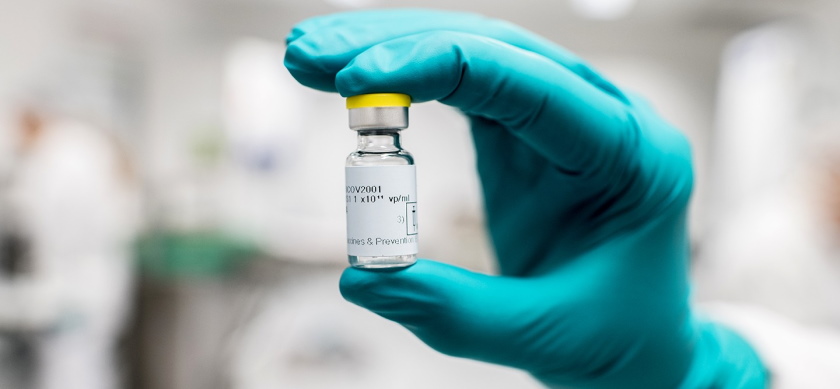FDA clears third emergency COVID-19 vaccine from J&J

The FDA has approved emergency use of a third COVID-19 vaccine from Johnson & Johnson’s Janssen Biotech unit, the day after an advisory committee concluded it was safe and effective.
Janssen’s Ad26.COV2.S vaccine has been authorised for use in people aged 18 or over after a “comprehensive evaluation of available safety, effectiveness and manufacturing quality information,” said the FDA.
It is the third coronavirus vaccine to be approved for emergency use in the US after two mRNA-based shots from Pfizer/BioNTech and Moderna, but the first that requires only one dose to confer its protective effects and can be stored at standard refrigeration temperatures rather than a deep freeze.
The swift approval comes as no surprise, after the FDA’s Vaccines and Related Biological Products Advisory Committee (VRBPAC) backed the shot unanimously at a meeting held on Friday. Prior to that, the agency’s reviewer said the regulator was satisfied with data showing the shot was 66% effective at preventing COVID-19 28 days after a single dose.
A single dose was also deemed to be 85% protective against the most severe COVID-19 illness at the same time point, and seemed to retain activity against some of the new, more transmissible variants of the SARS-CoV-2 virus, including the South African strain known as 501.V2 or B.1.351.
https://twitter.com/US_FDA/status/1365802117387202570
“Importantly, the vaccine was 100 percent effective in protecting against death from the disease everywhere it was tested,” commented Anthony Fauci, director of the National Institute for Allergy & Infectious Disease (NIAID).
“To get control of the COVID-19 pandemic, stay ahead of worrisome viral mutations, and protect the American public, we must vaccinate as many Americans as we can as quickly as possible,” he added.
Janssen said shipments of the first few million doses to be divided among US states could begin as early as Monday 1 March, and that by the end of the month it expects to deliver 20 million doses to the US, rising to 100 million by the summer.
The company has agreed to supply the vaccine at cost after the US government committed $1 billion towards its development.
At last count, around 73 million doses of the Pfizer/BioNTech and Moderna vaccines doses have been administered in the US, according to data from the Center for Disease Control and Prevention (CDC) dated 27 February. Almost 15% of the population has now received one dose, and 7% have had two.
Janssen has also filed for emergency use of the vaccine in the EU and UK via a rolling submission process, and has agreed to initial orders of 200 million and 30 million doses, respectively, for the two geographies.
The company has also filed for an Emergency Use Listing (EUL) with the World Health Organization (WHO) for the vaccine, along with several other applications in other markets around the world.
Like the AstraZeneca vaccine – which is approved in Europe but not the US yet – the Janssen shot uses a common-cold causing adenovirus, modified so it cannot replicate, as a vector to deliver the genetic code for the SARS-CoV-2 Spike protein.
The vaccine causes the body to create its own copies of the protein, stimulating an immune response.
The US emergency use authorization for the shot came around the same time as Bahrain became the first country in the world to grant it a full regulatory approval.
Ad26.COV2.S was welcomed by charity Oxfam America, which said it will be “a valuable instrument against the pandemic because it is a lower cost, single-dose vaccine that comes with corporate commitments to ensure increased access around the world.”
“[The] vaccine was largely funded by the public, so it must be a public good,” said Niko Lusiani, a senior advisor at the charity.
“While [J&J’s] commitments to a low-cost pandemic price are encouraging, the corporation could be a true world leader in the struggle against COVID by committing to keep its vaccine price at-cost after the pandemic, and sharing its vaccine knowledge, technology, intellectual property, data and know-how to urgently boost global supply,” he added.
Around 500 million doses of the vaccine have been ordered by the WHO-backed COVAX vaccine-sharing scheme, which delivered the first shipments of the AZ vaccine to Ghana last week.












